Search
Search Results
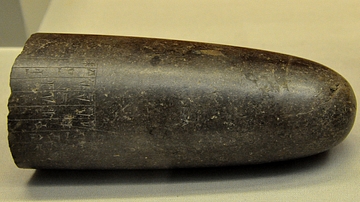
Image
Stone Weight from Sippar
The inscription, unusually for a weight, is cut in reverse. It mentions that this stone weight was dedicated to the temple of Shamash, the sun god, at Sippar. It precisely gives the weight as 10 mina, 15 shekels, a little more than 5 kilograms...
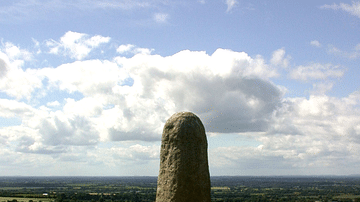
Image
Stone of Destiny, Hill of Tara
The Neolithic Lia Fail (Stone of Destiny), Hill of Tara, County Meath, Ireland, by which the ancient kings were inaugurated.
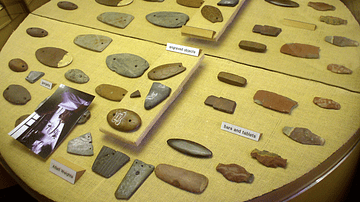
Image
Worked Stone Tools & Weapons, Poverty Point
A selection of worked stone tools and weapons from Poverty Point, Louisiana, USA. Dated to c. 1700-1100 BCE.
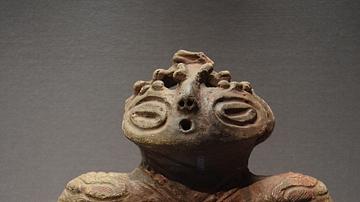
Image
Jomon Stone Figurine
A Jomon stone figurine or gangu. Komukai, Nanbu-cho, Aomori, Japan. Jomon Period, 1000-400 BCE. (Tokyo National Musuem)
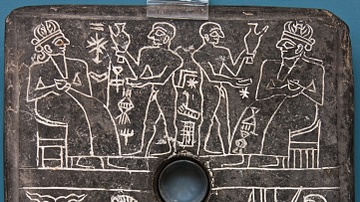
Image
Door Pivot Stone from Girsu
A door pivot stone from Telloh (ancient Girsu), third millennium BCE.
Istanbul Archaeology Museum.
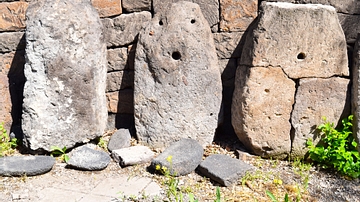
Image
Stone Tools at Shengavit Settlement
Stone tools and other archaeological remains from Shengavit, dating from c. 3500-2200 BCE. This settlement is an archaeological site located in Yerevan and is one of Armenia's most important Bronze Age sites.

Image
Roman Stone Anchor
A Roman stone anchor from the coast of Saguntum (Sagunto), Spain. 1st century CE. (Archaeological Museum, Sagunto)

Image
A Stone Bowl with Two Inscriptions
This stone bowl has two sets of cuneiform inscriptions. The first one says that the bowl was booty brought to Mesopotamia from Magan (modern Sultanate of Oman) by the Akkadian king Naram-Sin (2254-2218 BCE). The second inscription mentions...
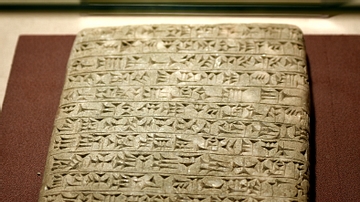
Image
Stone Tablet of Queen Yaba
This stone tablet was found in a niche into the right-hand wall of the space leading to the burial chamber of Tomb II (one of the vaulted burial chambers of the so-called Queens' Tombs inside the North-West Palace at Nimrud). The cuneiform...
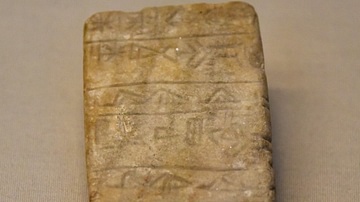
Image
Sumerian Stone Foundation Inscription
It was a Sumerian tradition to deposit or bury objects bearing inscriptions within temples and important public buildings. These recorded the names of the persons who were responsible for the building and also ensured divine protection. The...